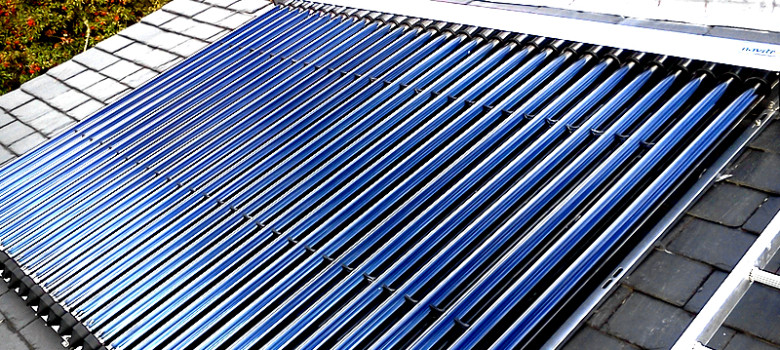

Renewable energy is power that is generated from natural sources, such as the sun, wind, biomass and water and are naturally replenished.
Choosing renewable energy sources for your home electricity and heating is a great way to reduce your carbon footprint, thus making your home more sustainable, and potentially lowering your household energy bills. If you are considering the transition from fossil fuels such as oil and coal to a renewable energy source, we have included information on options that may be suitable for your home.
Should you decide to install solar PV for your home, Action Renewables can register your home for Electricity export payments - please contact us on 028 9072 7760
Action Renewables do not carry out home solar panel/renewable energy installations or audits on feasibility.
For Commercial Energy Audits please contact our Consultancy team.
The MCS website has a list of installers for each type of energy source with installers able to provide further details. Click here to visit the MCS website.
MCS Installer website
Solar Photovoltaic Panels
Solar panels are an excellent and sustainable way to reduce your electricity bills, improve your homes energy efficiency and reduce carbon emissions. Generating your own electricity reduces your dependence on traditional fossil fuels and will contribute towards making your community more sustainable. Solar PV is the generation of electricity using energy from the sun.

Heat Pumps
Heat pump systems are a well-placed alternative to conventional gas or oil heating systems which can reduce energy costs, improve energy efficiency and lead to a reduction in your homes carbon emissions. Inefficient heating systems can waste energy and cost you more to maintain comfortable temperatures within your home.
A heat pump system is a low carbon heating system which can replace conventional gas or oil heating systems. A heat pump is an electric device which depending on the type converts energy from the air, ground, or water outside your home into useful heat. There are two types of heat pump:
- Air Source Heat Pump
An Air Source Heat Pump is the most common heat pump system it is a system which absorbs heat from the outside air using an outdoor unit.Contained within the outdoor unit is an evaporator and a fan. The latent heat which passes across the evaporator is used to increase the temperature of the refrigerant within the evaporator, turning the refrigerant to a gas. This gas is then passed through a compressor which increases the temperature to between 25 – 75°C. The higher temperature gas is passed through a plate heat exchanger and the high temperature from the gas is absorbed by the primary water within the heat pump system, this water is used to heat radiators, underfloor heating systems and provides hot water for your home.
Air source heat pumps can operate and extract heat from outside air when temperatures are as low as -25°C. The system does not require underground piping to source heat and so it is often easier to install and more affordable than other heat pump systems.
There are two main types of Air Source Heat Pumps:
1.Air to water: this type of heat pump system will distribute heat through your wet central heating system.
2.Air-to-air: this type of heat pump system will produce warm air which is circulated by fans to heat your home. Air-to-air units do not produce hot water.
- Ground Source Heat Pump
Ground Source Heat Pumps (GSHPs) are less common than air source systems. GSHPs are sustainable systems which extract renewable heat energy from the ground, concentrating it and using it to supply heat and domestic hot water.
GSHPs involve the installation of collector pipework (ground loop) to be installed in your garden. This ground loop is used to circulate a mixture of water and antifreeze. The fluid absorbs heat from the ground and passes through a heat exchanger into the heat pump. This heat can then be used to heat your radiators, underfloor heating, and water in your home.
The length of the ground loop will be unique to the size of your home and your heat demand. This can be laid out horizontally at a shallow depth or vertically at a greater depth.
Water Source Heat Pumps (WSHPs) are another type of heat pump system although less common. WSHPs use open water such as lakes, streams, or rivers as a heat source to heat your home. WSHPs use submerged pipework to absorb heat from a water source in the same way as a GSHP operates. GSHPs and WSHPs are often more complex and expensive than their air source counterparts however, they are a more reliable system even in colder weather when air source systems may be required to work harder.

Biomass
Biomass boilers are also known as wood fuelled heating systems. Biomass boilers are similar to the conventional home heating boilers most of us will have installed in our homes. However, a biomass boiler differs from conventional boilers which use fossil fuels as it is a renewable energy source, which produces heat for your home through the combustion of sustainably sourced wood pellets, plants, and other organic material.

Solar Thermal
Solar Thermal is a great way of reducing your homes energy consumption while saving money on your energy bills. Heating your water with solar thermal will reduce your homes energy consumption, which will make your home more energy efficient and reduce greenhouse gas emissions. Solar Thermal is the generation of heat using energy from the sun.

Heating Controls
There is a simple way to make your home more energy efficient – through the installation of heating controls.
A typical home heating system which is not controlled by heating controls can waste energy and make your home more expensive to heat. The introduction of heating controls in a home can reduce energy usage by up to 20%. Saving you money on energy bills while also making your home more comfortable.
Heating controls will allow you to schedule your heating requirements, to match your schedule and ensure heating and hot water is only used when required.
There are a several different types of heating controls which can be installed in the home to improve energy efficiency.

The Northern Ireland Sustainable Energy Programme provides grant schemes for eligible households. Currently under Priority level 5 - Innovation there are grants for air to water heat pumps (eligibility criteria applies). Contact the installer listed for further details.
Check out the NISEP Grants 2022-2023